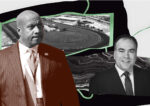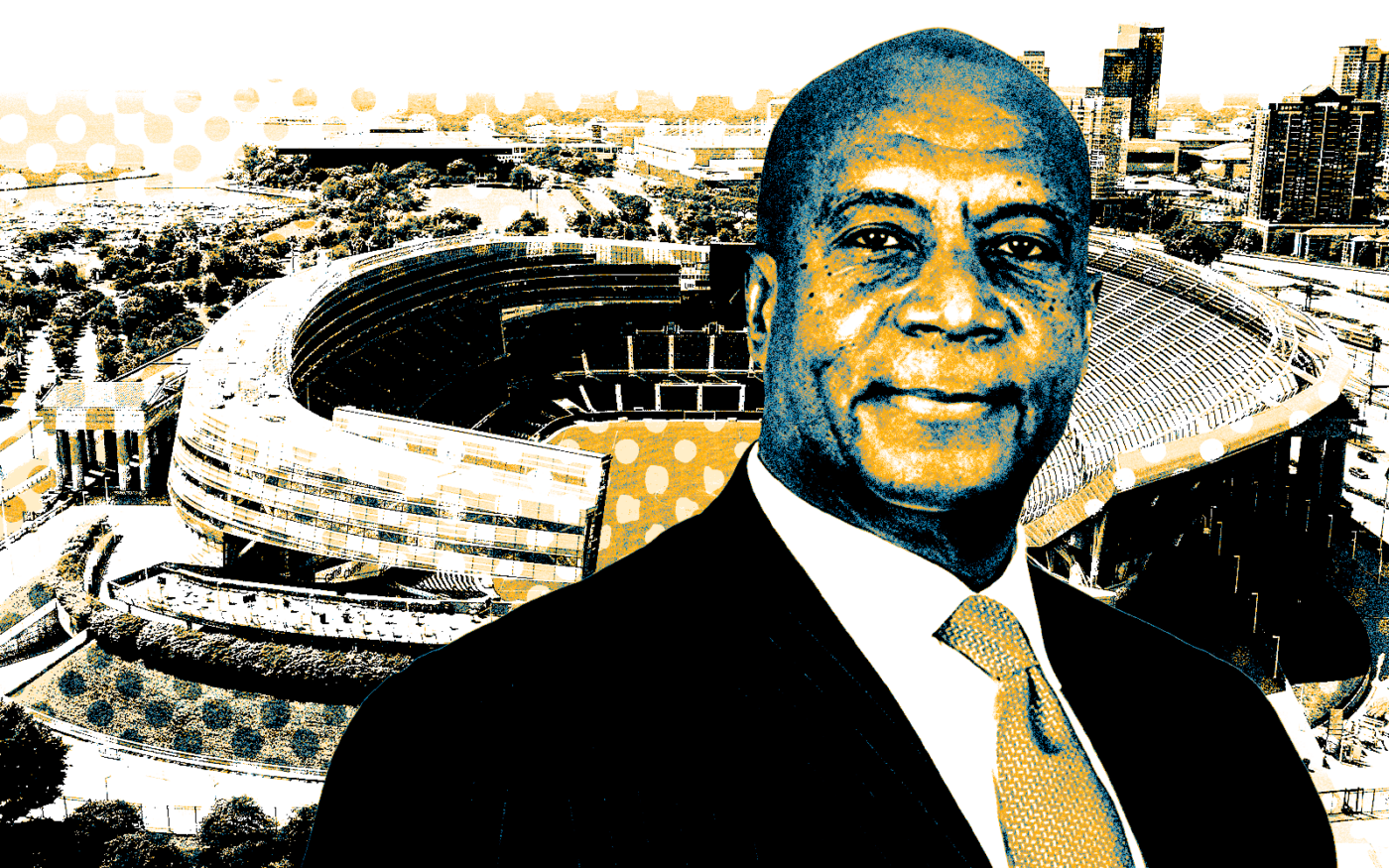The Chicago Bears are zeroing in on a plan for a domed stadium along the lakefront, and the NFL squad is prepared to reach deep into its own pockets before asking taxpayers to help fund it.
The Bears are willing to provide $2 billion in private financing for a gameday venue that would replace Soldier Field, where it’s played for more than 50 years, the Chicago Sun-Times reported.
The team aims to increase the open space on the museum campus surrounding Soldier Field by 20 percent, making it attractive for major events such as the Super Bowl and NCAA Final Four, in addition to year-round community activities.
The team’s investment plan further solidifies its intent to stay in the city limits, more than a year after finalizing a deal to pay $197 million for the former Arlington International Racecourse, envisioning a stadium-anchored mixed-use development. An ongoing tax dispute has thrown a wrench in the Bears’ $5 billion plan in the northwest suburb, although that project hasn’t been ruled out completely.
Roughly 80 percent of Chicagoans are in support of the lakefront stadium proposal, with 77 percent expressing a desire to keep the Bears in the city, according to a poll conducted by McGuire Research on behalf of the team. The poll revealed that 60 percent of Chicagoans are in favor of using public money for a publicly owned stadium.
The proposed project, slated for the area around Waldron Drive, would feature expansive plazas, pathways and landscaping, with public access to the lakefront. Plans also include the preservation of the Soldier Field colonnade in honor of veterans.
“The future stadium of the Chicago Bears will bring a transformative opportunity to our region — boosting the economy, creating jobs, facilitating mega events and generating millions in tax revenue,” Bears president Kevin Warren told the outlet. “We look forward to sharing more information when our plans are finalized.”
Read more



Chicagoland Chamber of Commerce CEO Jack Lavin touted the proposal as “impressive and exciting,” underscoring its potential to elevate Chicago’s status as a world-class city and tourist destination.
Challenges lay ahead, though, including a city ordinance that generally prohibits private development on the lakefront. Plus, nonprofit organization Friends of the Parks, which successfully opposed a previous development plan for the area, has expressed reservations about the proposal, urging careful consideration and community input.
—Quinn Donoghue
